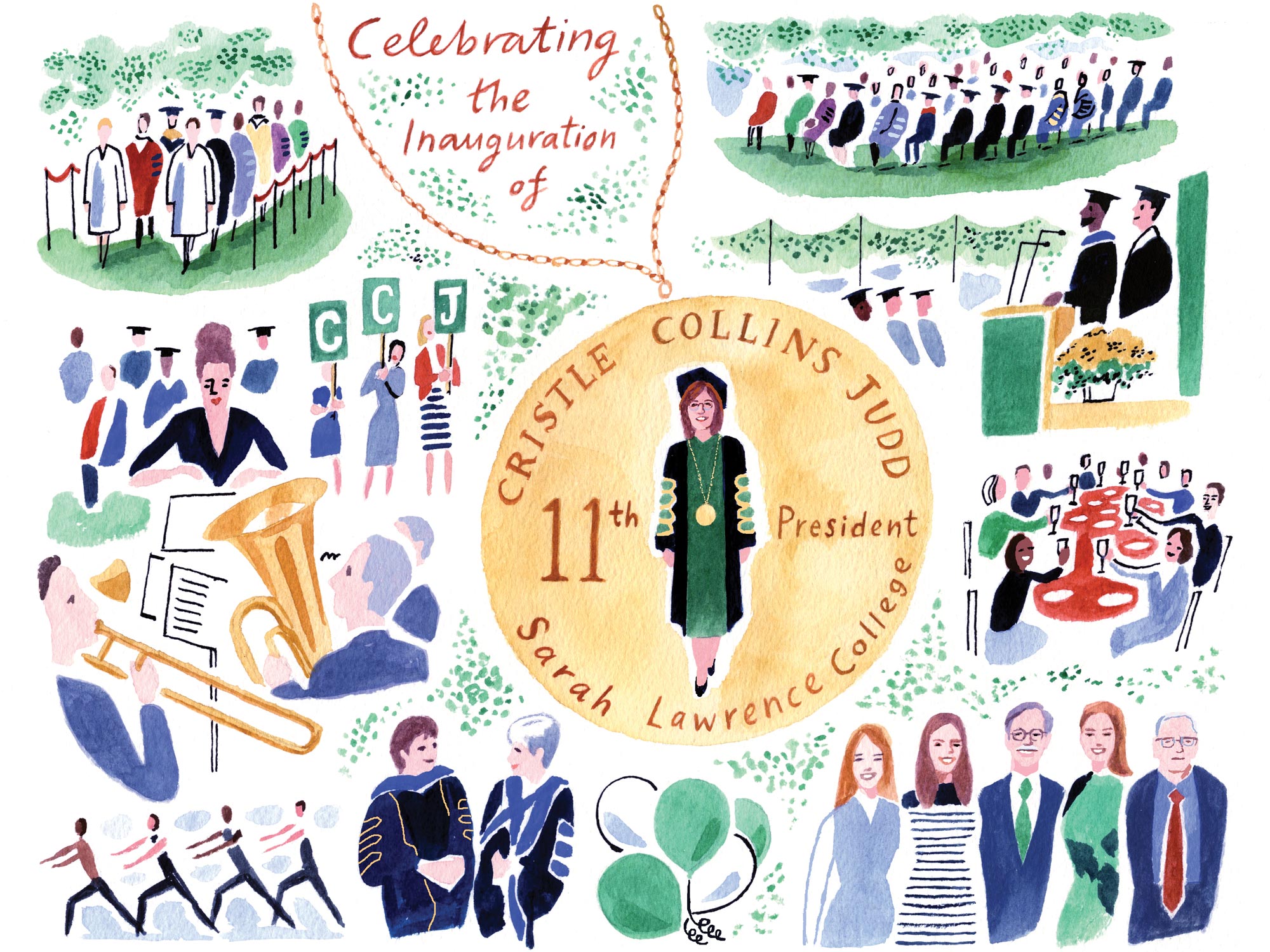
Part I: A Motto
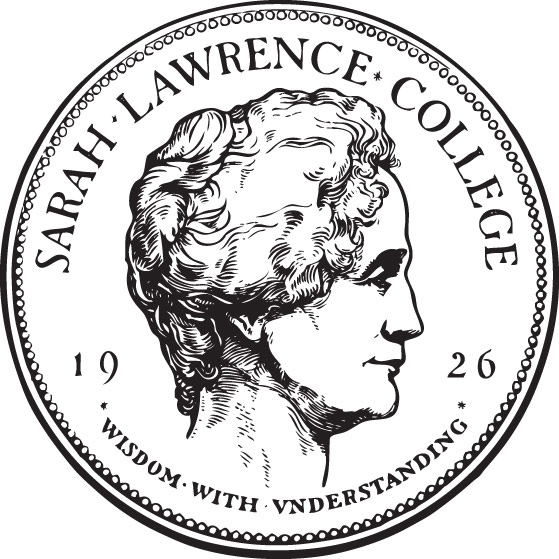 I stand before you, sporting the presidential medallion bearing our College seal, with its portrait of Sarah Lawrence, the year of the College’s founding (1926), and the motto “Wisdom with Understanding,” a motto that has lodged in my consciousness.
I stand before you, sporting the presidential medallion bearing our College seal, with its portrait of Sarah Lawrence, the year of the College’s founding (1926), and the motto “Wisdom with Understanding,” a motto that has lodged in my consciousness.
In getting to know Sarah Lawrence, I have been asking those I meet for words or phrases that encapsulate the College and its students. Although not a single respondent has uttered the phrase “wisdom with understanding,” shared sentiments have emerged: innovative, progressive, intellectually rigorous, self-directed, creative, passionate, and bold. These traits offer a foundation for understanding how Sarah Lawrence approaches challenges and opportunities: what kind of place and community we are and what sort of institution we aspire to be.
There are plenty of “firsts” in Sarah Lawrence’s history. As the first two-year college in New York, founded to honor Sarah Bates Lawrence’s commitment to women’s education, the College quickly evolved into a four-year institution and created the unique experiential, multidisciplinary, arts-infused, and self-directed education for which it is known. Only 18 years after it opened, Sarah Lawrence first admitted men through the GI Bill. The first graduate programs were added that same year, leading to nine current graduate and professional programs, including the first and still preeminent program in human genetics. And the College’s commitment to lifelong learning was evident in the founding of the Early Childhood Center, along with a robust engagement with continuing education. Those are but a few of our “firsts.”
In its relatively short life, Sarah Lawrence has been both an imaginative newcomer and an influential changemaker, an institution willing to confront difficult issues that challenge our society as a whole.
Part II: A Theme
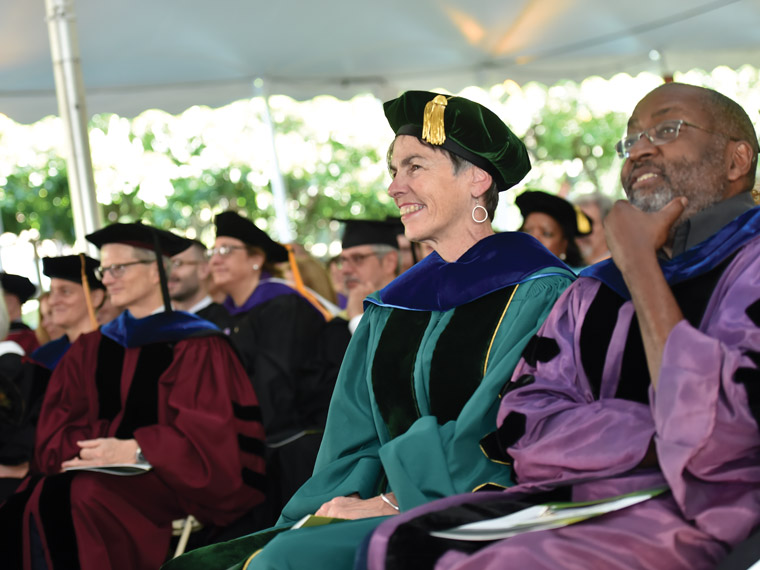 In the history of the College, one name is unavoidable: that of John Dewey, one of the most influential figures in the progressive education movement. Dewey’s landmark Democracy and Education, written a century ago, set the stage for Sarah Lawrence as he framed a model of education intended to equip individuals to comprehend, experience, and creatively shape a world characterized by rapid social, economic, political, cultural, and technological change. Dewey feared that the United States was on a path to becoming a society in which groups and communities—especially those with the greatest resources—would avoid contact with those who differed in outlook and practice, thus risking a vital opportunity for society to transform itself peacefully rather than violently. The situation he described feels eerily familiar today.
In the history of the College, one name is unavoidable: that of John Dewey, one of the most influential figures in the progressive education movement. Dewey’s landmark Democracy and Education, written a century ago, set the stage for Sarah Lawrence as he framed a model of education intended to equip individuals to comprehend, experience, and creatively shape a world characterized by rapid social, economic, political, cultural, and technological change. Dewey feared that the United States was on a path to becoming a society in which groups and communities—especially those with the greatest resources—would avoid contact with those who differed in outlook and practice, thus risking a vital opportunity for society to transform itself peacefully rather than violently. The situation he described feels eerily familiar today.
Think back on recent weeks: Charlottesville, hurricanes and earthquakes, an executive order unwinding DACA, newly revised guidelines for Title IX, Las Vegas, and more—all events and issues that not only generate front-page news, but also spark explosive debates.
This is the context in which we adopted the theme of “democracy and education” for a yearlong series of events in which we confront pressing questions. What are the essential elements of a democracy? Who gets to be a citizen and why? How do we learn to speak to one another across deep ideological divides? And what role should education—and higher education, in particular—play?
These questions have long animated the lives of our students and graduates as they contribute to the tenets of a thriving democracy. This conversation must radiate beyond the campus and embrace diverging points of view.
Part III: A Challenge
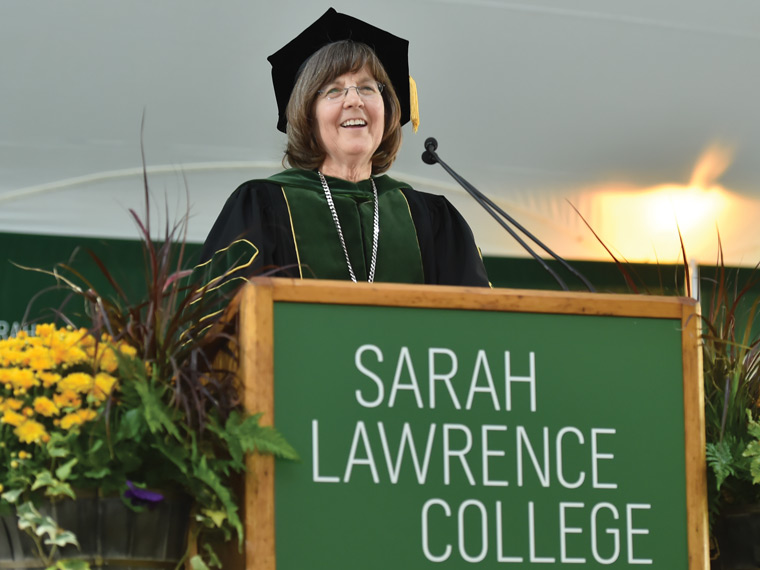 This inauguration symbolically weaves a set of pasts—mine and Sarah Lawrence’s—together into our shared future. It is a special honor that my friend and former colleague Anna Weesner composed a work for the occasion, titled Changing the Odds. In that phrase, “changing the odds,” I hear our fundamental challenge.
This inauguration symbolically weaves a set of pasts—mine and Sarah Lawrence’s—together into our shared future. It is a special honor that my friend and former colleague Anna Weesner composed a work for the occasion, titled Changing the Odds. In that phrase, “changing the odds,” I hear our fundamental challenge.
Here, I feel compelled to express profound gratitude for the odds I encountered. My mother didn’t go to college, but my father did, the first in his family to do so, creating an expectation that I, too, would go to college. I was extraordinarily fortunate that in our family, education was sought after and celebrated, so much so that when I graduated from college my grandmother gave me a prized possession: my great-grandmother’s high school diploma, which now hangs in our study at the President’s House. I am quite certain I would not be here but for the deeply formative experience of my own undergraduate education.
Along with such gratitude must come sober recognition: gratitude that the path to college was readily available to me as a white middle-class woman, and that generous financial aid and scholarships made my education possible. And, simultaneously and sadly, recognition of how many impediments stand in the way of higher education for so many today. In this recognition, I hear in the phrase “changing the odds” a broader reference to our theme of democracy and education. And a challenge: Are we prepared to do what it will take to change the odds? To change the odds for students through the education we provide? To find a way to provide unfettered access to that education?
Our history has positioned us for continued innovation. As we look toward our second century, we are poised to create a more integrated model of education as we explore the individual strengths of our programs as well as the unique intersections they offer to provide liberal arts and advanced and professional training. We have opportunities to explore new collaborations and nontraditional formats that support lifelong learning to benefit a diverse student body.
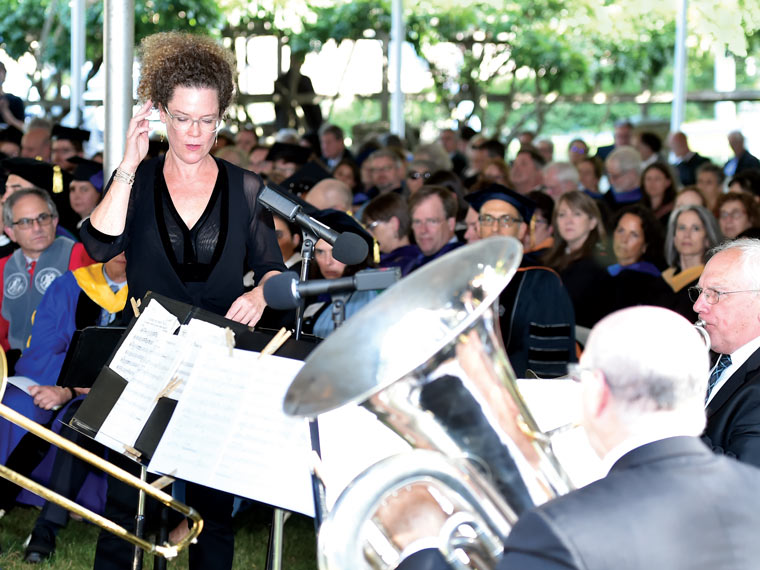 “Wisdom with Understanding” points to the essence of a Sarah Lawrence education: discovering which questions to ask and how to follow them relentlessly, digging deep to pursue a possibility, bringing all of one’s creative energies to bear. But it also signals a way of proceeding—with understanding—that reminds us of the necessity for empathy, for generosity and grace when encountering competing views. Only then can we learn to speak to one other across deep divides and create a society that can transform itself peacefully rather than violently. This is a tall order for a college campus—one to which we must aspire.
“Wisdom with Understanding” points to the essence of a Sarah Lawrence education: discovering which questions to ask and how to follow them relentlessly, digging deep to pursue a possibility, bringing all of one’s creative energies to bear. But it also signals a way of proceeding—with understanding—that reminds us of the necessity for empathy, for generosity and grace when encountering competing views. Only then can we learn to speak to one other across deep divides and create a society that can transform itself peacefully rather than violently. This is a tall order for a college campus—one to which we must aspire.
We leave with this charge:
Through
wisdom with understanding
let us engage
democracy and education
so that together we will
change the odds.
Address condensed by Suzanne Guillette MFA ’05
Illustration by Sarah McMenemy
Photos by Dana Maxson and Chris Taggart